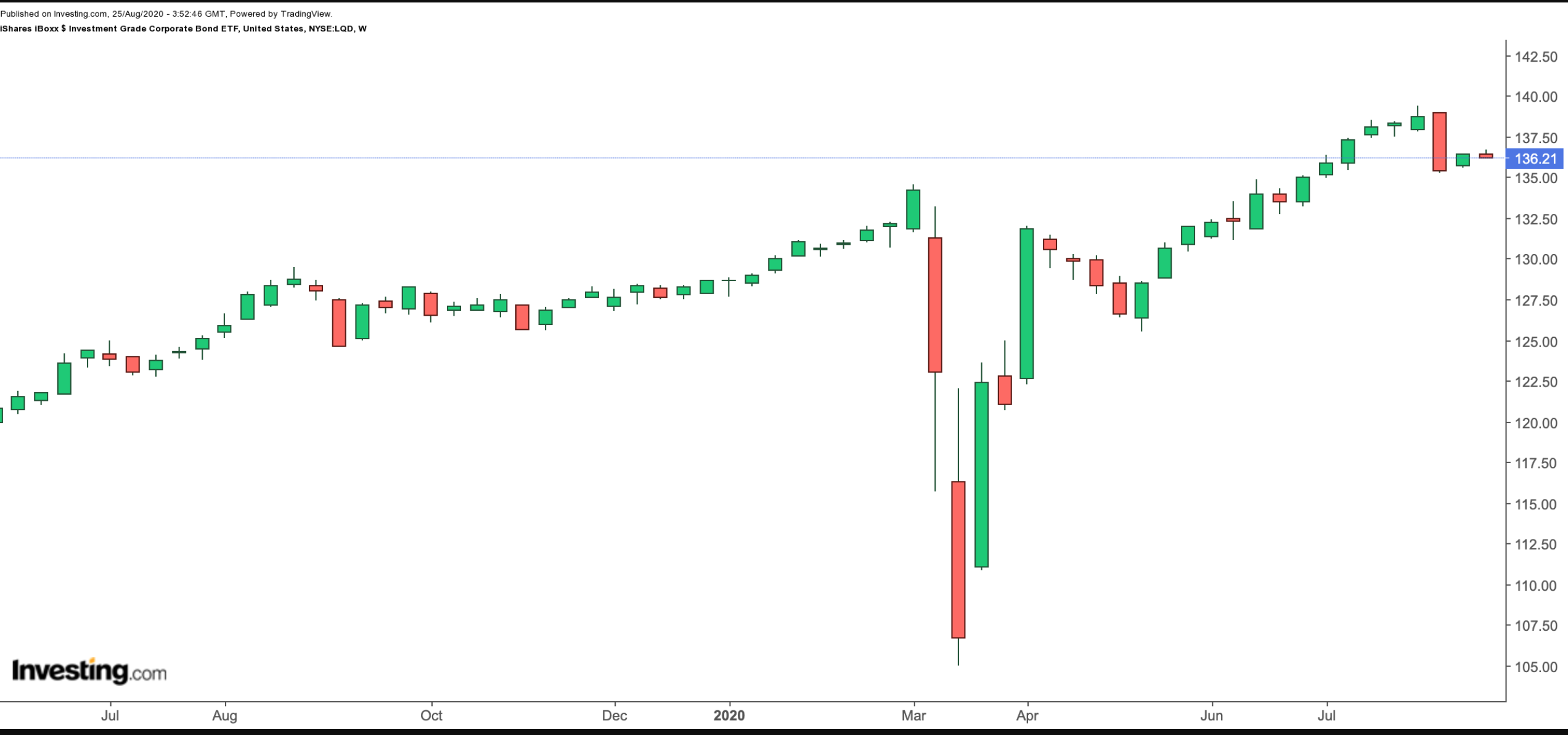The Fed gained widespread attention beginning in March for its pledge to support the market in every possible way amid the devastating impact of the coronavirus pandemic. One of these measures involves buying corporate bonds through ETFs as well as directly.
For investors interested in gaining exposure to bonds through ETFs, here we'll address the key differences as well as a Bond ETF worth considering:
Bond ETFs Vs. Bonds
As part of portfolio diversification, many investors prefer exposure to bonds as they offer steady returns and have low correlations to stocks. Bond ETFs—portfolios of bonds that trade on an exchange—may hold different types of fixed-income securities such as Treasuries, corporate bonds, municipal bonds, multi-sector bonds, junk bonds or foreign bonds.
Bond ETFs have many of the same characteristics as the asset class itself. For example, rising interest rates tend to harm the price of a bond ETF, the same as for an individual bond.
However, there are also several key differences that potential investors should keep in mind.
Corporate bonds can be difficult to trade since the market tends to be illiquid, trading on average once a month. On the other hand, Bond ETFs are liquid and since they trade on an exchange, they can easily be bought or sold during market hours, offering exposure to highly illiquid corporate bonds.
Secondly, unlike individual bonds, bond ETFs do not mature. Understandably bonds held within an ETF have maturity dates. But when a bond matures, the ETF manager uses the principal value that is returned to buy another bond. As a result, the portfolio's maturity is kept constant, and the fund's investment objectives are met. Unless investors thoroughly follow the holding reports filed by the ETF, they would not be aware of this constant buying and selling of bonds in a given fund.
Another significant difference between a bond and a bond ETF: the payment structure. Interest payments on a single bond are typically paid semiannually, or twice each year. But bond ETFs usually pay interest monthly, rather than semiannually. Many investors find this feature quite attractive.
iShares iBoxx $ Investment Grade Corporate Bond ETF (LQD)
- Current Price: $136.21
- 52-Week Range: $104.95 - 139.38
- Distribution Yield (TTM-Trailing Twelve Month): 2.91%
- Expense Ratio: 0.14 % per year, or $14 on a $10,000 investment
The iShares iBoxx $ Investment Grade Corporate Bond ETF (NYSE:LQD), provides exposure to a broad range of US investment-grade corporate bonds. Its weighted average maturity stands at 13.61 years.

LQD which has 2,324 holdings tracks the Markit iBoxx USD Liquid Investment Grade index. The top ten holdings constitute just over 20% of the fund’s total net assets, which stand at $56.7 billion. LQD's top five companies are Bank of America (NYSE:BAC), JPMorgan Chase (NYSE:JPM), Wells Fargo & Company (NYSE:WFC), AT&T (NYSE:T) and Comcast (NASDAQ:CMCSA).
The largest sectors (by weighting) are Banking (24.44%), Consumer Non-Cyclical (18.63%), Communications (12.21%), Technology (10.87%), and Energy (8.34%).
According to Bloomberg, as of the end of June, the Fed is the third-largest holder of LQD. Since committing to support the markets in every possible way, the central bank has bought corporate bonds through ETFs like LQD.
This decision by the Fed means purchasing bonds not only of struggling businesses hit hard by the coronavirus pandemic, such as travel and leisure firms but also of some of the stalwarts in the markets. There is an on-going debate as to whether corporate titans of US should be supported by the Fed.
Year-to-date, the fund is up 6.45%. However, in March, LQD plunged to an all-time low while on Aug.7, it hit an all-time high. Since early spring, the LQD soared around 30%. In the coming days, a drop below $135, or even toward the $130-level is possible in this overextended market.
Finally, those advanced investors interested in derivative strategies, such as covered call options or put selling, may be interested to know that weekly options are available on the ETF.
